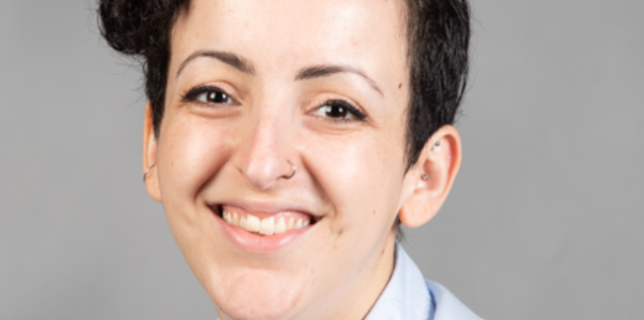A blog post by PhD in Education for Social Justice Student Ambassador Hannah Mesouani
Coming back to school after some time off can be quite a daunting task. In the five years that I took off between my undergrad and pursuing my Master’s in the Midwest, I worked hard and picked up some fun hobbies – yes, watching TV is a hobby, don’t @ me – and got to choose my own bedtime even with demanding job expectations. Still, I decided to dive back into all things academic on a part-time basis and, to quote Tiffany Haddish, she NOT ready. As a low-income immigrant, every hour I worked had to result in some kind of money and ability to keep a roof over my head. I knew that furthering my education was a worthwhile investment in my future, but I still had to survive my present and keep a job that asked a lot of me.
Unbeknownst to me, until the first time I tried it since coming back to school, those all-nighters were a thing of the past. I just don’t have it in me anymore like I did when I was a teenager. Now, I know I am still relatively young, but 11 pm is bedtime or I’m not seeing my desk at 8 am for work. I began my program part-time and ended up achieving enough balance in my personal life that I could complete my final year as a full-time student. Still, on my graduation day for my Master’s Degree, my academic advisor said to me, “I really didn’t think you’d make it,” a sentiment he shared with me before on numerous occasions. Good thing I love a hater.

What I love more, however, is the community I have found at SOLES. I love my cohort and my professors who motivate not denigrate me. I look back on my slightly younger self and wish that I could have told her the following:
- This is your education. Your timeline and well-being are more important than anyone else’s expectations. You are investing in yourself.
- If you knew everything on day one, you’d be the professor. Give yourself time to learn and explore. You are going to feel the impostor syndrome. It’s ok, we all feel it, too. Take care of yourself and talk it out when you feel ready to. You belong here. USD wouldn’t be investing in you if you didn’t’.
- You will overestimate what you can do in a day and underestimate what you can do in a week. Bust out that Google Calendar and stay organized. You will feel like you always need to be reading or writing. Your school work will not be part of your life, it will become the new lens with which you experience your life. Structure matters, and so do days off.
- Some days are just really, really hard. We humanize data and dive into heavy histories that remind us of the individual and collective traumas we still experience today. Knowledge is indeed power and sometimes that power takes you. But you can use to create such a positive change in your life and the lives of others. Get in the habit of seeing how you can apply what you are learning in your career and other areas of your life. You are allowed to act on knowledge in far more ways now than you were as an undergrad.
Your professors are – surprise! – real people. That stigma or hesitation of getting to know your professors that you may have felt in undergrad? Nope. Here at SOLES, we encourage it. It is truly one of the most valuable facets of the program. Get to know Dr. Spencer. Don’t just learn from the course content your professors have assigned you, talk to them, and learn from their individual experiences, too


